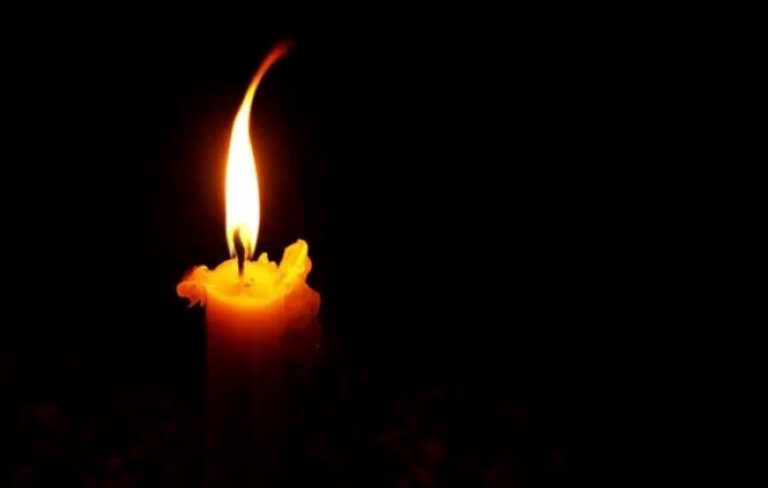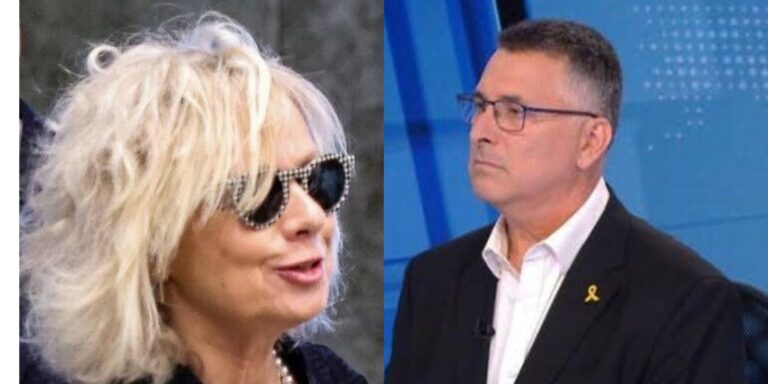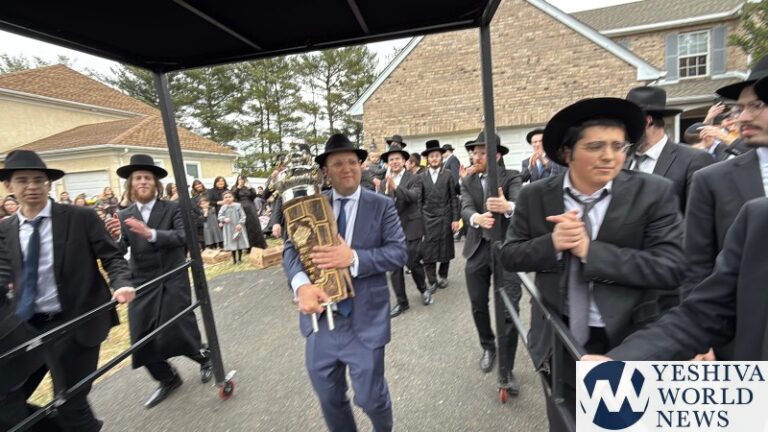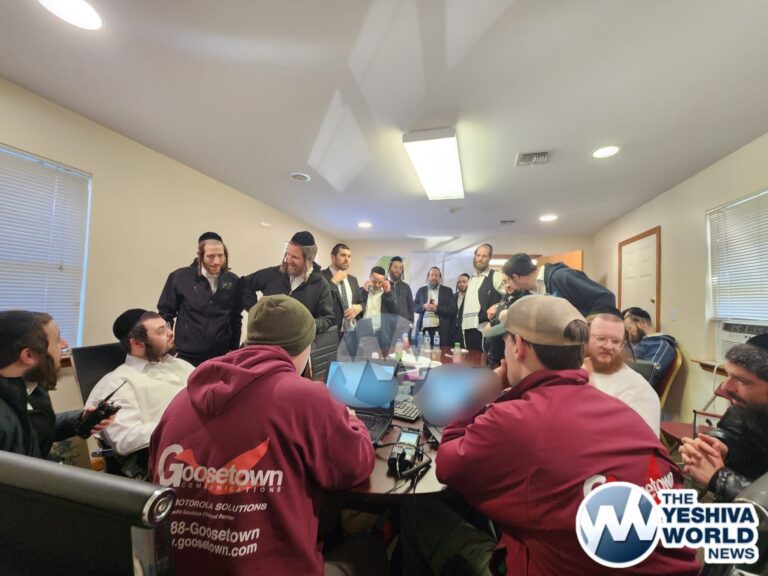 “With only a few day left until zman matan toraseinu, we’d like to share this exceptionally moving essay, written by one of the hidden gems of our generation. Rabbi Shlomo Price, Rebbe at Yeshivas Neveh Zion for over 35 years, is in dire need of our tefillios. Please pray for Shlomo Yoel Ben Chaya Leah b’soch shaar cholei Yisrael.
“With only a few day left until zman matan toraseinu, we’d like to share this exceptionally moving essay, written by one of the hidden gems of our generation. Rabbi Shlomo Price, Rebbe at Yeshivas Neveh Zion for over 35 years, is in dire need of our tefillios. Please pray for Shlomo Yoel Ben Chaya Leah b’soch shaar cholei Yisrael.Rabbi Price attended the Rabbi Jacob Joseph School (R.J.J.) through High School, Yeshivah Chofetz Chaim, Monsey, and the Mir Yeshivah Central Institute in Brooklyn, before coming to Neveh 33 years ago.
Please enjoy this uplifting essay from Rabbi Price. May our learning be a zechus for him and help us live better, happier lives in this world and the next.”
—
It’s the 28th day of the Omer. Four weeks have passed and only three weeks left to that great day of Matan Torah-Shavuos.
I really am not sure what to write about Shavuos. I decided just to tell some stories and points that have inspired me, and hopefully you will be inspired too.
The Mashgiach (commonly known in Neveh circles as the “Mash” Rabbi Chaim Yisroel Blumenfeld, of Neveh Zion) wrote in the last newsletter about an unfortunate response to the invitation to the brunch.
The fellow said that he had fallen so far away that he didn’t want to come to the brunch to be reminded.
If by some miracle this fellow is looking at this sicha, this story is for you. If somebody else, who knows the fellow, is looking, then please show this to him.
The famous author and psychiatrist, Rabbi Abraham Twersky spoke in Neveh last Elul and related the following, moving story.
“When I was young my Father disciplined me. He never said, ‘Why were you a bad boy?’ Rather he said, ‘ It’s beneath your dignity to do such a thing. You’re too good for it.’
I run a rehabilitation program for people who were in prison for crime, alcohol, and drugs. We try to help them start their lives over. I was speaking to a number of inmates about this point.
“You’re too good for this. You’re too good for this kind of thing to happen to you.”
One fellow, named Avi, exclaimed, “What do you mean, I’m too good for this? How do you expect me to have any self esteem? I started stealing when I was 8. I’m now 34. I was in prison 8 times for a total of 16 years of my life. Nobody is going to hire me. Who’s going to give me a job, are they crazy? My family doesn’t want to see me. They wish I were dead!! How do you expect me to have self respect!!”
I told him, “Did you ever see an exhibit of beautiful jewelry. There was a necklace with a beautiful 20 carat diamond in the center . It was worth 4 million dollars. Do you know what that diamond looked like when it came out of the mine. It was yucky-a dirty piece of glass. If the worker didn’t know any better, he would have called it junk and thrown it away. Fortunately, there’s a maven there who stops the worker. ‘That’s not junk, there’s a gem in there worth millions of dollars,’ he says. ‘Where is it?’ the worker exclaims. Oh, it’s in there somewhere, the maven responds.
They take this dirty piece of glass into the factory and process it. By the time they get finished you have a beautiful diamond. How did they put such beauty into a dirty piece of glass? What magic did they use? The answer is, there was no magic. The beauty was always there, but concealed by what’s outside. What they did was process it and reveal the beauty that was concealed.
Avi, don’t tell me what’s inside of you, I know better.
Every morning we get up and say , “Elokai, Neshomo Shenosato Bi Tehora He... Hashem, Your soul that You gave us is pure…”. You have a piece of Hashem inside of yourself. It’s a beautiful gem . It just so happens, that your 16 years of prison have covered it up with layers of stuff so you can’t see the beauty. We’re going to help you process it and reveal the beauty of it. You and everybody else will see what’s there.
Avi went through our program and got his act together. He got treatment, went to a halfway house, and eventually got a job in construction.
We were expanding the halfway house when Annete, the girl who works there, got a call. A family lost their mother and wanted to donate her furniture to the halfway house. All they needed was a van to come and pick it up. Annete called Avi and he said that he would get a truck and pick it up in two days.
When Avi got there, he told Annete that it wasn’t worth it. Most of the furniture was broken, old and dilapidated . It was ready for the garbage. Annete told him that she didn’t want to disappoint the family. She said to bring it and what we can salvage we will. The rest we can throw away.
He brought the stuff and started shlepping a couch up to the halfway house. Out of the couch falls an envelope with 5000 Shekalim.
You have to realize, Avi used to steal purses for 10 shekel or less. He’s making now 100 shekel a day and trying to get his family together. Now here’s 5000 shekel that nobody knows about. It’s practically hefker.
Avi tells Annete about the money and she said to call the family. The family thanks Avi for telling them, but they donate it to the halfway house in their mother’s memory.
When I met Avi afterwards, I told him, “Didn’t I tell you we would find a diamond? I know many respectable people, who were never in prison, who would have kept the money if they were in your situation. For a guy who was in jail 8 times for stealing, to have made such a reversal, that he finds an envelope of money with no name and returns it-we’ve polished a diamond.”
When I visited the halfway house I was thrilled to see that Avi put up a sign “Mifal L’Letishat Yahalomim– The Center for Polishing Diamonds.” Every morning we say “Elokay, Neshomo…” We have a diamond, a part of Hashem in us. Sometimes we don’t realize it, because we live in a world where all kinds of events that occur to us, cover it up. We have to realize where the beauty really is.
We should do the things that Teshuvah tells us to do [Torah and Mitzvos] not just in Ellul, Rosh Hashana and Yom Kippur, but all year round. Then we can reveal that scintillating diamond for everyone (including ourselves) to see.”
Many years ago I saw a very important point about Shavuos from Rav Moshe Feinstein, zt”l. (Can be found in, “Kol Ram” Vol. I, p.200-201 by Rabbi Avrahan Fishelis, and in “Lekach Tov, Bamidbar p. 36-37.)
Rav Moshe pointed out that the meal offering brought on Shavuos, the “Shtei Halechem- Two Breads” was unique in that it came from chometz. All other meal offerings were matzoh.
He also points out that the Gemoro Pesachim 68b discusses how a person should spend his Yomim Tovim.
Rabbi Eliezer maintains that a person should spend his entire day doing the same thing, either “LaHashem” – in spiritual endeavors (Torah study), or “Lochem” (for you) – eating and drinking. Rabbi Yehoshua maintains that a person should divide his day evenly between the two. The Gemoro concludes, Rabbi Elazar says “All agree that on Shavuos you need also “For You”, since this is the day that the Torah was given to Yisrael”.
The question commonly asked is, that logic would dictate the opposite. On the day the Torah was given, shouldn’t all agree that it must be spent with spiritual endeavors?
Rav Moshe explains that the day the Torah was given, one must instill in his heart that Torah is not only relegated to spiritual concerns. Rather, Torah rules over all of a person’s dealings. A person must put all physical, mundane and secular matters such as eating and drinking under the domain of the Torah.
Therefore one should not fast on Shavuos, rather eat and drink. That is also why we bring the meal offering specifically from chometz. This is coming to stress that even chometz which is more physical than matzoh must come under the domain of the Torah.
I have underscored this point in my Sefiras Haomer sicha.
“We also have to understand the vast difference between Torah and l’havdil what the Goyim call Wisdom. This can be very well illustrated with a story about the famous Philosopher, Aristotle. He was once found by his students doing an immoral act. When he was asked how such a great man can do such a lowly act, he replied, “Now I’m not Aristotle.” In other words, when I’m lecturing in the University standing at the pulpit wearing my frock, then I’m Aristotle the Philosopher. But after I finish my lecture, step down, hang up my frock, and go outside into the desires of the world, then I’m a normal human being with animalistic desires just like anybody else. My teachings don’t have to affect my way of life.
Rabbi Leff in his Sefer on Chumash (Parshas Noach) brings a story about a Professor of Ethics in City University, Bertrand Russell who was found to be immoral. When he was asked how an immoral person teach Ethics? He answered, “You don’t have to be a triangle to teach Geometry.”
Torah is not like that. Torah is not just a garment that you take off when you leave the Beis Hamedrash. It is rather something that is that is supposed to be incorporated into one’s self, to refine his Midos – Characteristic Traits. It teaches him how to interact with others in the wide world, how to control his animalistic desires, and learn to be satisfied, not jealous of others.
The Lev Eliyahu (by Rav Eliyahu Lopian, zt”l, vol 4, pg. 351) discusses the concept of Ben-Torah. He questions how come when one learns Math he doesn’t become a “Ben-math”? He explains that Torah changes and refines a person’s Midos, thus transforming him into a different person. It is as if the Torah gave birth to him, hence the name Ben-Torah (son of Torah). Other subjects have no such effect on the one who studies them.
I read an article in the Reader’s Digest 1990, titled “Rajan’s Monster Memory”. It is a story about a guy from India who had a phenomenal memory. At first, he would use his gift to amaze his friends by memorizing train and bus schedules. After a while he felt there was nothing to gained from this, so he decided to use his talent to make it into the “Guinness’ Book of World Records”. He memorized the mathematical formula for Pi (the ratio of the circumference of a circle to its diameter which is about 22/7 or 3.14…) which goes on infinitely, and beat the record for that. When asked why would anyone want to know that, he answered that “It was for the challenge of it”.
In sharp contrast, Rabbi Zelig Pliskin (“Love Your Neighbor” p. 256) brings a story of a Rabbi Eliyahu Kletzkin, who also had a phenomenal memory. He used his memory “to assist others by memorizing the schedules of trains and ships all over the world. This way he could aid people who planned trips.” This underscores the point we made before as to the difference between Torah and Wisdom. The person without Torah used his talent only for his own glory. He couldn’t see any gain in memorizing schedules. The idea of helping others didn’t dawn upon him. Rav Kletzkin on the other hand only thought about using his gift to help others, even though he wouldn’t be making trips or getting glory for himself.”
I also pointed out in my “Letter to an Alumnus”:
“You also must realize that whatever you do, you always are a Ben Torah first. This has to show in the way you act and deal with people. Some think that a person is a Ben Torah only when learning in Kollel, not outside. My Rebbi, on the other hand, always taught us that there is a Ben Torah who learns and a Ben Torah who works. As Rabbi Leff said whatever you are, you have to be a Talmid chochom who is a doctor not the other way around. The difference is seen whenever there is a conflict between the Torah and the job, which takes priority?!
When Yaccov Avinu gave a blessing he said, “Hashem should make you like Ephraim and Menasheh”. Why did Yaccov mention Ephraim before Menasheh if Menasheh was the older brother? The answer is that Ephraim represented the Torah, since he had studied with Yaccov Avinu. Menasheh on the other hand was the statesman, Yosef’s right-hand man. The lesson for us is that we should be B’nei Torah first.”
It is also important to realize that everyone of us has a portion in Torah. As we say, “Vsein Chelkenu Bsorasecha-Give us our portion in Torah.” Everyone’s job is not to be like someone else. No two people are alike. Rather, each person should use his full potential.
Rav Elimelech M’Lezhinsk (I believe) would say, “I’m not afraid if Hashem asks me why I wasn’t Avrahan Avinu. I could tell Him, You didn’t give me his heart.
I’m not afraid if Hashem asks me why I wasn’t like Moshe Rabbeinu. I could tell Him, You didn’t give me his head.
What I am afraid is, what happens if Hashem asks me, Why weren’t you like Rav Elimelech M’Lezhinsk?”
I also stressed this point, when I sent a barmitzvah message to my nephew. I mentioned it in “Letter To An Alumnus”
“You are entering the great privilege of being able to do Torah and mitzvos. You will no doubt enjoy it immensely, but there may be difficulties and distractions that may make it a bit hard for you. I will therefore give you the wise advice of the Chofetz Chaim about this problem. We recently read the posuk (Shmos 3:5) that Hashem told Moshe “hamokom asher atoh omed olov admas kodesh hu“-“the place upon which you are standing is sacred land”. The Chofetz Chaim comments [also quoted in “Growth Through Torah” by Rabbi Pliskin] that when a person finds himself with many distractions and difficulties, he is likely to say that only when Hashem improves his situation will he be able to do Torah and mitzvos. Now all I can think about is my problems. It is precisely in these situations that the Torah is telling us, “the place upon which you are standing” -that exact situation that you find yourself in – “is sacred.” If your life situation is difficult, it is in that exact situation that Hashem wants you to serve him. Chazal say, “According to the pain is the reward.” till here is from the Chofetz Chaim.
“Of course you may take action to improve your condition. but no matter what life is like, our mission in life is to study torah and do mitzvos.”
I was always taught, that our job is not to be better than others, but rather to take the capabilities that Hashem has given us and to do the best that we can with our own capabilities. The truth is that many people have greater capabilities than we do, but does it mean that they will be greater? It is very possible that we will reach our potential more than they will reach theirs.
This can be illustrated with a beautiful story that I once read as a kid. There was once a king who had three sons and he wanted to test them to see which one would be the next king. He gave the first son-$1ooo, the second son-$500, and the youngest son $10. He told them they could buy whatever they wanted, and the next king would be the one who could fill up a certain room in the palace from the floor to the ceiling with what they bought. The first brother brings many wagonloads of straw, almost filling up the room, but there were still spaces left that weren’t filled. The second one brought many carloads of feathers and replaced the straw with the feathers. He got further than the first brother but he still didn’t reach the top. Finally the youngest son comes with a small bag. Everybody was wondering how does he plan on filling up the entire room with the contents of a small bag? To their amazement, he took out ten candles and matches. The light of the candles filled up the room and he became the next king. The lesson is that it was specifically the one with the least potential who was victorious over the rest.”
It is interesting to note, that I received a tape of my nephew’s bar mitzvah and heard Rav Reuven Feinstien say over a similar message from his father, Rav Moshe, zt”l [It is also found in “Darash Moshe” Parshas Va’Eira-Shmos 6:26]
Rashi on Shmos 6:26 points out that says that sometimes Aharon’s name appears before Moshe’s name, and sometimes the opposite. This is to teach us that they were equal.
Rav Moshe asks, “How can this be? Moshe was the Master of all the Prophets (See “Ani Maamin” 7 of the Rambam). The Torah was given through Moshe. So how can we say that Aharon was equal.
In one of his answers he explains:
“Since Aharon completely fulfilled all of the Will of Hashem that he was capable of doing, he is equal to Moshe. Even though, Moshe was greater (in capability) and that is why he was given more significant tasks to perform. However, since they both used their individual capability to its fullest potential, they are considered equal in level.”
Of course, one should not underestimate his potential. When it comes to Torah, the Yetzer horo tends to persuade us that we have a very limited potential. But we have to be honest and learn from the way we run after money. [Shlomo Hamelech says; “If you’ll want it like silver and search for it like treasures, then you’ll understand Yir’as Elokim, and then you’ll find Da’as Elokim”.]
A certain bochur said that he couldn’t get up for Shacharis at 7:00 A.M., because he had a ‘weak nature’. I meet the same guy in the summer and he’s getting up at 6:00 A.M. to be a truck driver.
The Beis Halevi stresses this point in Parshas VaYigash Breishis 45:3. [Also quoted in “Lekach Tov” Breishis , p.283]. The Posuk says when Yosef revealed himself to his brothers and said, “I am Yosef, Is my Father still alive…
And his brothers couldn’t answer him …..”
The Medrash Rabah Breishis (93:10) says:
“Abba Kohen Bardala says “Woe to us from the Day of Judgement…the Day of Rebuke… If the brothers couldn’t withstand the rebuke of Yosef… certainly we will not be able to withstand the rebuke of Hashem on the Day of Judgement when he rebukes each person according to what he is…”
The Beis Halevi asks many questions on this Medrash, I’ll mention a few.
Where do we find Yosef rebuking his brothers? He just asked them “Is my Father still alive?”
Why is Yosef asking if his Father is still alive? The whole time, Yehudah is stressing that Yaccov, his father, would die if Binyamin wasn’t brought home. So he knew that he must be alive.
What does the Medrash mean that Hashem will rebuke each person “according to what he is?”
The Beis Halevi answers with a very important foundation.
Sometimes, the best way to rebuke someone is to show that his own views and actions contradict themselves from one situation to another.
When Yosef said “I am Yosef, Is my Father still alive?”, he wasn’t asking what he already knew. Rather he was alluding to what Yehudah said before.
“How can you say that you are worried that my keeping Binyamin will bring about the untimely death of your father?
“I am Yosef, Is my Father still alive?” When you sold me, did you worry about how this might bring about the untimely death of my father?”
This is the same rebuke Hashem will give each person “according to what he is.”
When it came to Torah you couldn’t sit for a half hour. You said you have a restless nature. But when it came to a movie, you suddenly got better and were able to sit for hours.
When it came to davening, you blame Hashem for giving you a weak and sickly body that needs a lot of sleep. When it came to a job you had a miraculous recovery and you’re up at 6:00 A.M.
The explanation is that when you had an interest you used your full potential. When you weren’t interested, you fooled yourself into underestimating your true potential.
Let us learn our true potential, from our desires for the things that we really want. Then we should learn how to apply this potential and interest to the things that we should want.
It is also important to point out that although we received the Torah over 3300 years ago, Kabolas HaTorah repeats itself every year on that same day. In “The Haggada”, (published by Mesorah publications) Rabbi Joseph Elias quotes;
“Any achievement that was attained, any great light that radiated at a certain time – when that time comes around again, the radiance of that light will shine again, and the fruits of that achievement will be received, for whoever is there to receive them.” (Derech Hashem)”Each season of our year thus contains its unique emanations of holiness; through the cycle of the year we can seek to relive the great of happenings of our history, and – entering into their spirit – draw from them strength and inspiration for the future.” (S’fas Emes)
Receiving the Torah is like someone giving away free lemonade. How much we get depends on the size of the vessel we bring. If we bring a cup, pail, or barrel, that will determine the amount we get. So too with Torah. How much we will get, directly depends on how much we prepare for it. What better way to prepare then to show how important Torah is to us, by setting up times to learn, maybe learning a little extra, or even giving up an opportunity to do something else.
I want to close off with a beautiful Moshol that is brought down in “Around the Maggid’s Table, ” by Rabbi Paysach Krohn, p.167 “Short Cuts” (reprinted with permission of Mesorah Publications).
He tells about a Rabbi of a certain Lakewood Congregation, named Rabbi Shmuel Blech. On one Shavuos he told the following parable.
A small community wanted to have a Sefer Torah written for its synagogue. After many months the Torah was ready. The people planned a day of celebration for when the Torah would be brought to their synagogue.As part of the festivities, the Rav of the community would drape the Torah with a beautiful mantel (covering). The women in the town would each make a covering that would eventually be used on different occasions. The nicest one however, would be chosen to enwrap the Torah on the day of the festivities.
All the women worked feverishly to produce beautiful works of art. The day of festivities came and the Rav and leader of the community were asked to choose which was the nicest.
After examining each one carefully, the Rav and leader of the community both agreed that the purple one with the multicolored embroidery depicting Mount Sinai was the most suitable one.
The elderly woman who had made it was thrilled beyond words. She felt that all her arduous work had been worthwhile, for now she would have the honor of having her handiwork bedeck the new Sefer Torah. Her family shared in her pride.
The Rav picked up the covering and started to slip it over the Torah. But it wouldn’t fit. He tried to tug it, pull it and yank it, but it was simply too short. The people were surprised, but the woman who had made it was aghast. How could she have made it so small? Her pride quickly turned to humiliation.
The Rav and leader of the community conferred for a few moments and they agreed that they would have to choose another covering. When their decision became obvious, the elderly woman ran up to them and cried out, “Wait, I have an idea! You can still use my covering!”
“And how do you suppose that could be done?” asked the Rav.
“It’s very simple, ” answered the woman. “Just cut the Torah down to size, and it will surely fit!”
After telling this parable, Rav Blech continued on with this message.
“Surely all of us would agree that the woman’s suggestion was ludicrous. Yet how many of us, in our daily lives, do exactly what that woman proposed to do?
We each have a certain life style that we feel is suitable for ourselves. At times, though, what we may perceive as desirable and important is in violation of Torah or Rabbinic law. What we SHOULD do is readjust our priorities. However, what many try to do, instead, is find a way to bend the law, and perhaps even “cut down” one aspect of Torah, so that the Torah will seem to suit our desires- when actually we should be seeing to it that our lives fit the criteria of the Torah.”
May we all be zocheh to a true Kabolas Hatorah.











2 Responses
A tzaddik through and through, dedicated to others ENTIRELY. Refuah Shelamah K’heref Ayin Be’h.
What a beautiful, inspiring essay! May Rabbi Price have a an immediate refuah sheleimah.